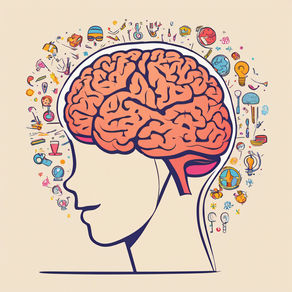COUNSELING FOR TEENS
Is It Time For Your Teen To Consider Counseling?
Are you concerned that your teen is struggling with anxiety, depression, stress, or unsafe behaviors, including excessive internet or cell phone use, and harmful self-image from Instagram?
Yet do you feel like every conversation with them results in conflict, withdrawal, or a dead-end?
The adolescent brain is changing every day. While your teen’s intellectual knowledge is expanding, it might be taking time for their emotional skills to catch up. As a result, your teen may experience their feelings intensely and struggle to manage their stress. With tension building, you may have noticed excessive arguments, avoidance, and maybe even self-harm. Instead of engaging in the activities and relationships that used to enrich your teen’s life, lately, they’ve turned away from them.
It’s hard to be around a teen who is often grumpy and insists on being left alone, but this is when they need the support of an adult the most. Working with a therapist, your teen can balance their budding independence with newfound skills for emotional awareness and stress management. Through the guidance and individualized support we offer at In View Counseling, you’ll be able to reconnect with your teen, by providing them with support and structure so they aren’t alone.


Many Teens Battle Emotional And Cognitive Symptoms
Unfortunately, mental health issues among teens are on the rise. The vast majority of disorders affecting adults can develop during the adolescent period. It’s estimated that by the time they reach 18, one in three teens meets the criteria for an anxiety disorder in the DSM-5.¹ Such symptoms might include:
-
Agitation and restlessness
-
Difficulty concentrating
-
Insomnia and fatigue
-
Muscle tension
-
Irritability
These symptoms can impact teens’ self-esteem and relationships, leading to setbacks in physical health, academic performance, and social situations.
Anxiety is not the only issue affecting teens, however. Depression and other mood disorders—including bipolar disorder—are expected to affect about 14 percent of the teenage population.² The rise in these statistics directly correlates to an increase in teen suicide, making suicide the second leading cause of death among individuals ages 15 to 19.³
What Causes Teens To Struggle?
Today’s youth are under immense pressure to be the best at everything they do—the best student, athlete, socialite, family member, etc. In the NOVA community, there is a high bar to succeed—it’s easy for teens to feel like they are never doing good enough. For girls, in particular, these pressures lead to increased instances of bullying, disordered eating, and perfectionist tendencies. Add these expectations to the comparison culture fueled by social media, and it’s no wonder that this group of individuals develops mental health symptoms at alarming rates.
In the people-pleasing, perfectionistic mindset that teens battle, it’s particularly difficult to self-advocate or ask for help. As a result, teens typically don’t reach out for support until their symptoms have worsened so much that they are in crisis and/or a parent intervenes.
As a teen, it’s important to understand that striking a balance is possible—you can maintain your academics, relationships, and individual goals without feeling overwhelmed and out of control. Teen therapy at In View Counseling allows you to break the cycles leading to counterproductive thoughts, unhealthy behaviors, and impossible expectations.
Therapy For Teens At In View Counseling
Many teens choose not to disclose their true feelings out of concern that they will upset their parent(s) or be judged. However, a therapist offers trained, unbiased perspectives on a wide range of issues affecting teens. Therapy is a safe space to process distressing events, difficult emotions, and unhealthy behaviors.
Our therapists are passionate about working with teens from all backgrounds, including those who identify as LGBTQ, neurodiverse, or otherwise marginalized. Using a combination of evidence-based and person-centered therapies, we offer our teen clients individualized treatment planning to improve coping and stress management skills.

What To Expect
Parent work is a key component of counseling for teens. During the intake, parents and guardians are involved in submitting paperwork and invited to the first session to help inform treatment goals. Throughout the counseling process, parents will participate by learning tools and strategies to reinforce their teen’s progress in therapy.
We use demonstrated therapeutic methods, effective in helping teens overcome a wide variety of cognitive, social, emotional, and behavioral challenges. Some of the approaches that may be used in counseling for teens are:
-
Cognitive Behavioral Therapy (CBT) - allows clients to understand how thoughts, feelings, and actions are connected
-
Family Systems – recognizes the strengths and value of each part in order to have more alignment within the Self as a whole
-
Dialectical Behavior Therapy (DBT) - offers lifelong skills for coping, distress tolerance, and interpersonal effectiveness
-
Solution-Focused Therapy – creates goal-oriented incentives, focusing attention on the solution rather than the problem
-
Psychodynamic Psychotherapy – creates a pathway for understanding the influence of the past on current thoughts and behaviors
Through these evidence-based modalities, our teen clients can develop skills for managing strong or unpleasant emotions in adaptive ways while simultaneously reducing triggers. As we support and empower them to work toward specific goals, they will gain clarity on the strengths, values, and perspectives that will move them closer to their goals. In time, cognitive, emotional, and physical symptoms will improve.
Still Unsure If Your Child Would Benefit From Counseling For Teens?
As a parent, will I know what my teen discusses with their therapist?
Though they are minors, teen clients have the right to confidentiality in psychotherapy sessions. What is discussed in therapy will be kept confidential unless your teen discloses abuse of any kind of abuse or threat to themselves or others. In those instances, we must report through the proper channels and let you know if your child is in danger.
How can I help my teen at home?
Your teen’s counselor will schedule check-ins or separate sessions with you as needed. The purpose of these sessions is for you to learn the same skills that your teen is learning in therapy, as well as parent-specific strategies that will best support your child.
When is it time for my teen to seek additional support?
It’s common for adolescents of all ages to experience challenges at school, at home, and in their relationships. Weekly counseling at our practice is available to teens who are neurodivergent or struggling with mood disorders and stress. However, it’s important to seek more immediate, urgent help if your teen exhibits any of the following:
-
Significant changes in mood or behavior
-
Participation in illegal activities
-
Unsafe sexual behaviors
-
Self-harm, including cutting
-
Disordered eating (including restricting, binging, or purging)
-
Inappropriate anger
Schedule a free consultation with us to find out if In View Counseling is right for your teen or if there are other resources better suited to their needs.


Relief Is On The Horizon
Adolescence is often a complicated and challenging time of life. The therapists at In View Counseling can help your teen discover who they are, identify their potential, and give them tools for effectively managing anxiety, depression, and stress.
For more information, you can schedule a free, 15-minute consultation by contacting us.





